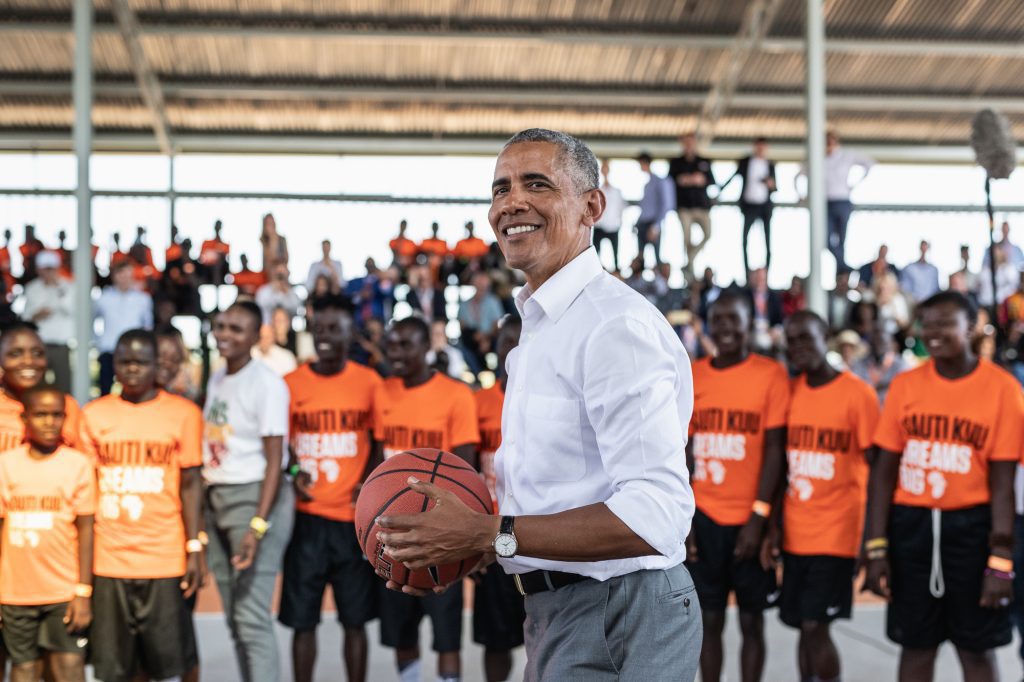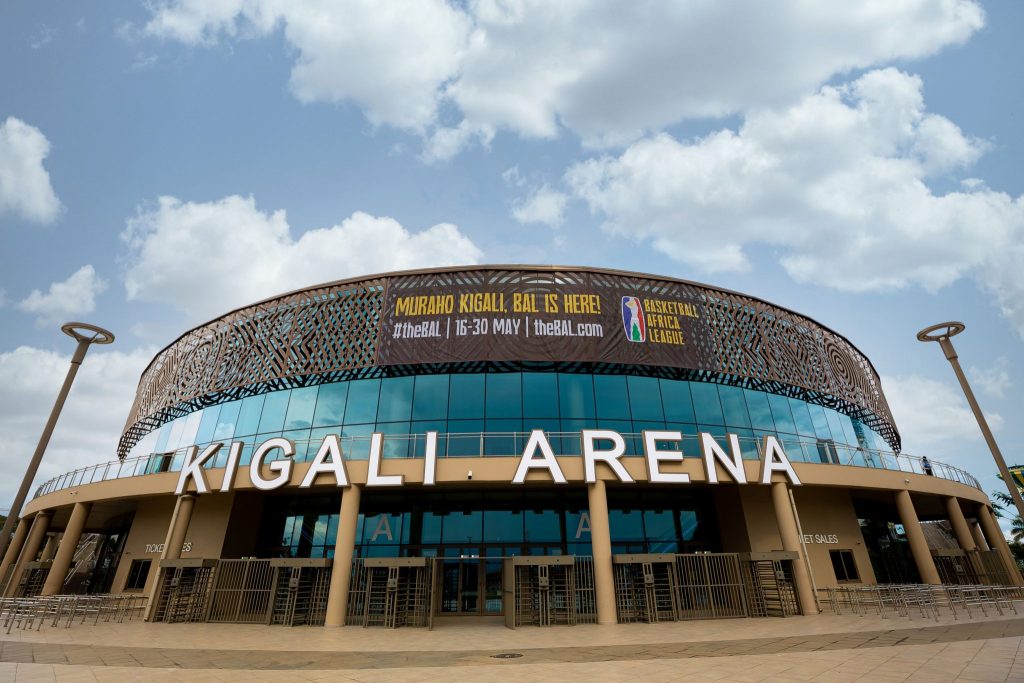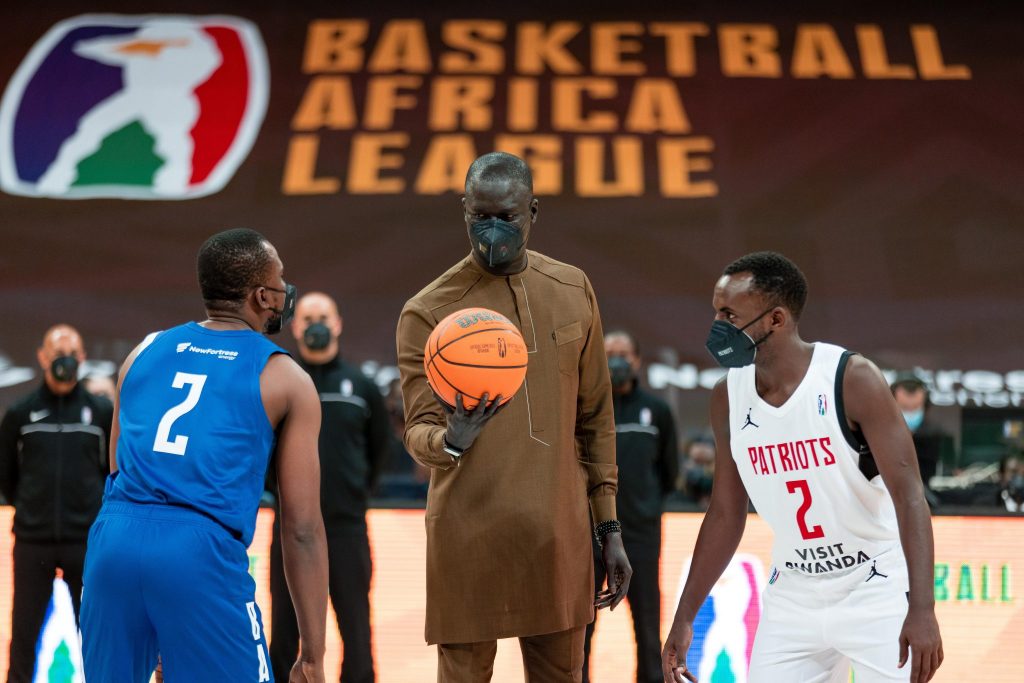Skift Take
It’s a powerful nod for Africa, giving it a solid competitive tourism advantage on the other side of the pandemic, from leisure to events. Will its destinations rise up to the opportunity?
In 2019, Africa was deemed the second fastest growing tourism region in the world. Travel contributed $194 billion to the continent’s gross domestic product, according to the World Travel and Tourism Council. South Africa, Egypt, and Nigeria had made the largest tourism contributions to GDP, and Tunisia and Rwanda showed over 10 percent growth, ranking among the top ten fastest growing tourism destinations.
And then, Covid. There’s been no shortage of challenges for the African continent since, from the decimation of tourism jobs — 51 percent lost by August 2020 — to conversation areas under threat due to loss of tourism revenue, internal civil strife and the Delta variant soaring as a result of vaccine inequity.
But a significant development has emerged out of the continent this year that could push Africa’s tourism industry back onto its pre-Covid growth trajectory faster than anticipated, while catapulting it into an innovative future. The game changer is the U.S. National Basketball Association’s (NBA) launch of its first professional basketball league to operate outside of North America: the Basketball Africa League (BAL), under NBA Africa as a legal entity overseeing the NBA’s operations on the continent.
Sports, along with deeper culture and more urban tourism, serve to offer closer-to-reality experiences for Africa to market beyond tried-and-true narratives of safaris and adventure trips.
Valued at $1 billion and now backed by private investors such as former NBA players Dikembe Mutombo, Grant Hill, Luol Deng, and more recently, former U.S. President Barack Obama — NBA Africa is poised to be a game changer for the continent as a tourism destination.
“After about a decade of activity, the NBA reflected on what we’ve done in Africa, and the decision was that there was significantly more opportunity that we could tap into on the continent in terms of basketball, in terms of commercial partnerships, in terms of social and economic impact,” said Victor Williams, CEO of NBA Africa.

The spillover effect from this long-term collaborative NBA and investor-backed venture has already opened the door to next-level tourism collaborations amid a pandemic. It’s showing the African tourism sector that its potential remains untapped.
A multiyear partnership with Rwanda’s travel industry — the Rwanda Development Board and RwandAir — as well as with NIKE and Jordan as on-court outfitters, among others, helped kick off the first BAL championship tournament in May 2021. Teams from 12 African countries traveled to Kigali to compete and remained in a bubble throughout the tournament.
NBA Africa and BAL executives are well aware of the impact that one of America’s most recognized brands will have on Africa’s tourism sector long term, particularly once the annual BAL tournament takes its original format of being hosted across multiple African countries.
Approximately 500 international guests from the NBA’s immediate circle traveled to the continent, lured by the new initiative in spite of having to endure quarantine, testing and city curfews in May that stunted ancillary activities.
“The way we look at it is, tourism and investment go hand in hand — those hands are mutually beneficial to each other, and what allows them to operate and be successful is confidence,” said John Manyo-Plange, vice president and head of strategy and operations at the Basketball Africa League.
“And you know, nothing gives off confidence more than a global, international sports brand saying we are confident in the infrastructure, we are confident in the operating environment, we are confident in the health and safety protocols and the middle of a pandemic, we’re going to bring our arguably the largest event that we’ve done on the African continent to Kigali.”
That itself is what gets people going, if the NBA is here well then it should be okay for me to come as well, Manyo-Plange added.
For now, NBA Africa’s league has created a buzz across the continent and boosted host Rwanda’s tourism industry in May, amid the pandemic.
“I think we didn’t understand how huge this was until it actually happened, you know because I was also going to the events,” said Bonita Mutoni, chair of Rwanda Tours and Travel Association, adding that the caliber of the celebrities and heavy weights who attended was surprising to her.
“It was phenomenal, I’d never seen anything like that. For the operators here, it was the first time this had happened. I think now to be more prepared for the next one, so that we’re able to share our packages, we’re able to prepare ourselves in the city.”
The promise is big for raising the continent’s travel profile coming out of a global crisis. It’s a huge opportunity to bolster “Brand Africa” and diversify the continent’s tourism industry offerings to showcase Africa’s cities and creative hubs, beyond the typical focus on the Big Five. Will the tourism industry step up to the challenge?
An “Additive to Tourism”: Infrastructure and Partnerships Through Sports
Before Covid hit, the launch of the Baseball Africa League had been scheduled for March 2020. Manyo-Plange said that the original tournament plan was set to launch in Dakar, Senegal and from there, play in seven African countries in a sort of caravan type format, with concerts and all sorts of ancillary events.
With Covid halting travel, the tournament host role shifted to a single destination in 2021: Rwanda, which had reopened its borders to tourism in August 2020 and was one of the few African destinations with an arena capable of hosting NBA-level championship games — something NBA Africa plans to help increase across the continent.

“Right now, when Jay Z and Beyonce or whoever wants to do a concert series on the African continent, they’re flying to South Africa, said BAL’s Manyo-Plange.
“But now they can fly into Kigali and do a major indoor concert that has the right facilities; very few other such facilities exist whether it’s in Kenya or Nigeria. So that’s one of the goals for the BAL and for NBA Africa as well is to really help drive and motivate that investment.”
The NBA holding talks with the Rwandan government and reaching a “build it and we will come” agreement dating back in 2017 is what led to today’s Kigali Arena.
“That’s for us a case study in what this kind of public private partnership can do across the continent.”
For Rwanda Tours and Travel Association’s Mutoni, the BAL further positioned Rwanda as a destination globally. “BAL was a fantastic opportunity for people to come, not just to watch the sports at the arena, but also be able to discover the destination. And we found that people were doing pre and post tours which was great.”
Mutoni said the media coverage that the destination received regionally and internationally was also significant in conveying safety and the destination’s progressive venues.
“I think it’s something people do not know much about our destination, there are perceptions of, you know, 1994 Rwanda.”
NBA Africa’s Williams said that the new league’s efforts, while focused on economic development through sports, necessarily meant they could only be helpful and additive to the tourism angle.
“We had a number of different people come in who were attracted to Kigali and made a trip to Kigali who would not have done that before,” said Williams, adding that the event created a way for Rwanda to tell the story it wanted to tell and planted the seeds for tourism that is going to happen in the future.
“One of our partners is the Rwanda Development Board so they had various vendors present at the hotels to engage with guests. People went out and saw the gorillas, and visited some of the resorts and traveled the country.”
But perhaps even more significant is the promise of economic spillover for tourism as a result of the NBA Africa’s tournament and future events.
“We engaged with more than 100 vendors on the ground to execute the event and spread significant dollars in the country,” said Williams. “I think at one point, we accounted for pretty much all the hotels in and around Kigali being sold out because of people coming in for the BAL.”
Williams could not disclose NBA Africa’s exact expenditure for the BAL’s May 2021 inaugural tournament in Kigali, but said it was “a seven digit type of figure” and “multiple millions.”
“The games were broadcast in 250 countries in 15 languages, with a significant reach in far flung areas of the world so that anybody interested in basketball would have an opportunity to view it,” said BAL’s Manyo-Plange.
NBA Africa executives had not anticipated that anyone would travel to Rwanda for the inaugural, but as soon as the launch was announced and people realized it was an NBA-caliber event, the demand soared.
“We started to get phone calls from people saying oh, I didn’t realize it was going to be like this, this kind of quality, this kind of broadcast and professionalism,” said Manyo-Plange.
“And so for us that really felt good that we put something out there from the African continent that was able to attract people to come in because it seemed so cool to them.”
For Naledi Khabo, Africa Tourism Association CEO, the BAL is sure to positively impact regional and local businesses which will benefit from an influx of teams and their fans.
“Beyond developing the sport, the BAL is driving economic development and in essence creating new ecosystems around infrastructure development, job creation,” said Khabo. “And the BAL platform will not only spotlight sports but the inherent intersections will spotlight Africa’s innovation and creative across fashion, music, art, culture.”
A MODEL To Be REPLICATed ACROSS AFRICA
This NBA linkage to tourism is likely to be replicated across the continent as NBA Africa expands its footprint and forges new public-private partnerships.
“Kigali is a great example of how it can work. Our hope and ambition is that this will be replicated in many places on the continent,” said NBA Africa’s Williams.
“Going forward, we would want to host the BAL games in multiple cities, and we would hope that every time we bring a game to the city, it helps to sell that destination from a tourism perspective, it helps to upgrade the infrastructure, upgrade the operating standards and really position that location to reap the benefits of increased tourism.”
In a post-Covid world, BAL’s vision would be that in addition to basketball games, there would be cultural events happening at the same time — music concerts, fashion shows, film festivals and art exhibitions, all to support and to showcase the creative economy within Africa and that too should help position those locations to be more attractive, Williams added.
Mutoni agreed, noting that with Covid restrictions the potential of the event to spill into tourism activities was limited but showed promise for the future.
“Hopefully by next year you know when people are vaccinated and things are better, the atmosphere will be completely different because people will have access to public events and go to bars or, you know the nightlife. I think we still managed to make the most of what we could do.”
The second season of the Basketball Africa League is in the works. Other African cities are under consideration to host the tournament, Williams said, while unable to disclose which at this time.
“As sports tourism remains one of the fastest growing sectors in the industry, ATA is looking forward to working with the BAL destinations across the continent,” said Africa Tourism Association’s Khabo.
“BAL’s global reach and platform is an excellent branding opportunity for DMOs to spotlight their destinations and offerings. The visibility for host destinations will also showcase our ability to host large scale events which will favorably impact the MICE sector.”
REIMAGINING Africa’s Tourism CONSUMER AND Offering
Like most regions around the world, the absence of international tourists pushed Africa’s travel industry, particularly the safari selling destinations, to look beyond their usual source regions, and market to travelers in their own backyard to boost tourism.
A young continent combined with a rising middle class with tech savvy and travel hungry citizens spells an opportunity for Africa’s tourism to reinvent itself and cater to a new kind of visitor — diversifying beyond safaris and national parks to promote urban and cultural travel to citizens at home as well as to the Diaspora.
And that’s the kind of visitor that NBA Africa and the BAL have the power to draw.
“We actually had a new set of visitors from the region, which we’ve been trying to push as well,” said Mutoni. “You have your typical safari type of demographic of much older people that are coming to Africa, but now we’re seeing that the demographic has completely changed because you have younger people that are coming to the destination to watch the sports and looking for something different to do rather than the typical safari experience.”
Different means staying in an African city, rather than rushing into the countryside to see the mountain gorillas, for example. “I think it was nice to have tourists in the city during the event, that was also a great opportunity for us to showcase Kigali.”
Rwanda’s 2020 tourism numbers speak to this changing visitor profile — out of the 493,734 international visitors that year, 56 percent were from African countries, with Kenyans leading the way. Others came from Europe and North America. Perhaps even more telling is that 26 percent of visitors were VFR, while 42 percent came for business and MICE purposes, and only seven for leisure.
For a country that saw record tourism revenue tumble for the first time since 2009 from $498 million in 2019 to $121 million in 2020, including slumping national park revenues from $29 million to $7 million in 2020, the BAL partnership served as an impetus for Rwanda to expand its tourism product and can do the same for other African destinations.
For NBA Africa and BAL executives, the power of sports goes even farther, beyond boosting other sectors — it also connects people across borders, and creates a bridge for cultural connections and reconnections. That’s the whole intent behind the NBA Africa’s African-born investors and leaders as well.
“The BAL is cool for Africa because of all the things that it represents for the African continent the investment we’re making here, we are on the ground, we’re doing it with African talent,” Manyo-Plange.
“But there’s a huge diaspora that is in the US and Europe, and Dominican Republic and everywhere else that is looking at this and saying wow, this is part of my roots, it’s part of my sort of genealogy, it’s part of my history and I want to find a way to connect to it. And basketball is a great sort of entry point that smooths that way for that to happen.”
It’s awakening a global feeling that underscores the power of what is being created for the Diaspora, and it represents a dichotomous market that NBA Africa is very conscious of, Manyo-Plange added.
In the meantime, Rwanda and its neighbors have been working on a parallel effort to sell their region more collaboratively through a new East Africa online travel portal. Rwanda is also working on selling itself as an individual, long-term stay destination during Covid times.
Could Covid vaccine inequity stunt NBA Africa’s efforts and the continent’s promising tourism horizon?
“We’re realistic — we also understand that Africa is not at the same place where the U.S. is,” said NBA Africa’s Williams. “During the NBA playoffs, we had full arenas during our finals — we may not be there for Africa, but we’ll do the very best we can in the next BAL season.”
Ultimately, the plans that the NBA has in Africa and the renewed commitment to African youth excellence, as well as plans to impact its social and economic growth is sure to be a boon for multiple sectors, primarily tourism.
“Look, Africa is cool and, you know, I mean, at the end of the day, whether you’re Black or you’re white, or you’re whatever, it’s a cool place to think about that spurs people’s imagination and Brand Africa itself has great value, and we’re sort of joining Brand Africa and brand NBA together so the potential and the future is extremely bright.”
The Daily Newsletter
Our daily coverage of the global travel industry. Written by editors and analysts from across Skift’s brands.
Have a confidential tip for Skift? Get in touch
Tags: africa, coronavirus, coronavirus recovery
Photo credit: NBA Basketball Africa League president Amadou Fall at the opening tournament game in Kigali, Rwanda — kicking off a new era for Africa's sports and tourism. Courtesy of Basketball Africa League / Getty Imagess
